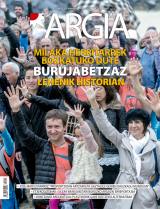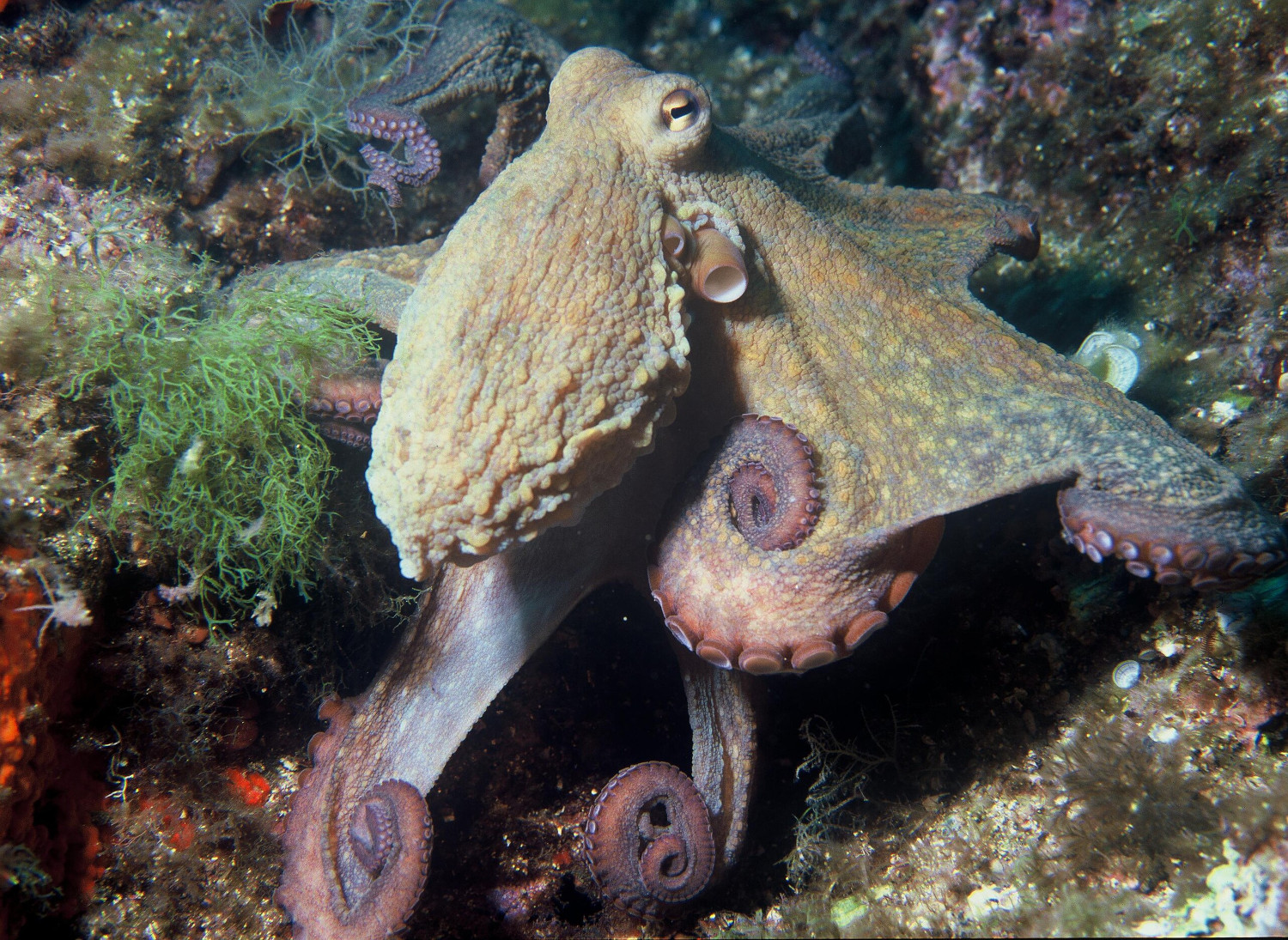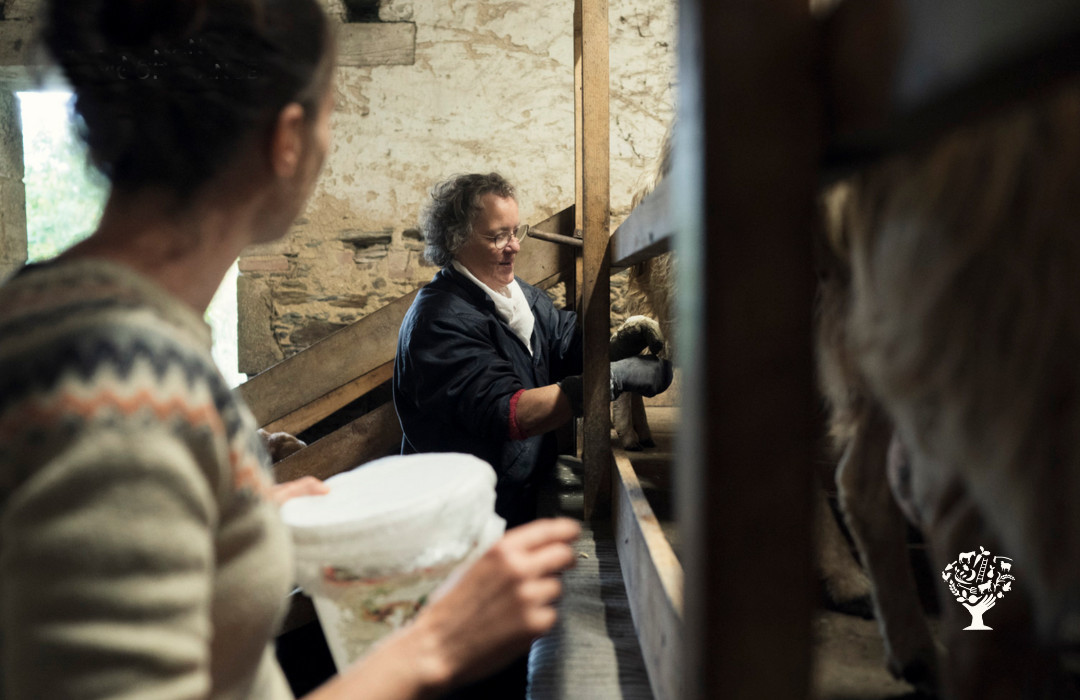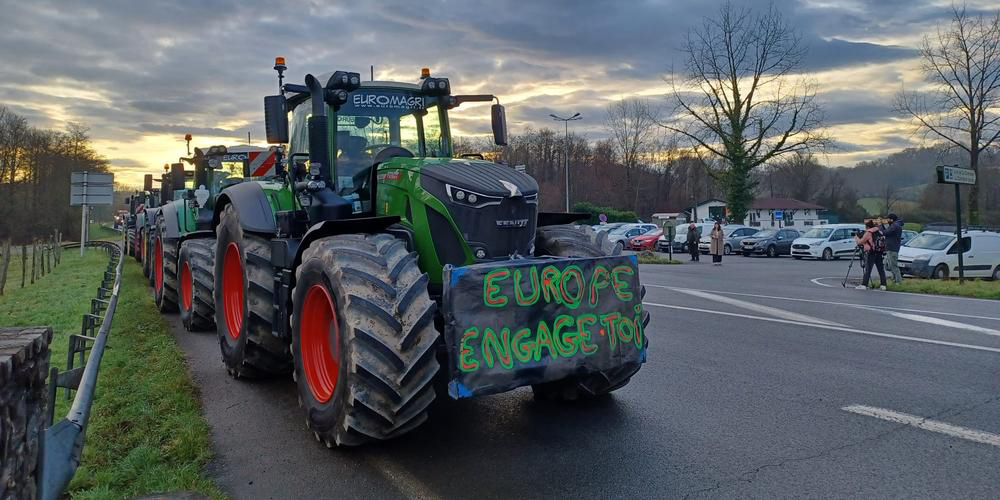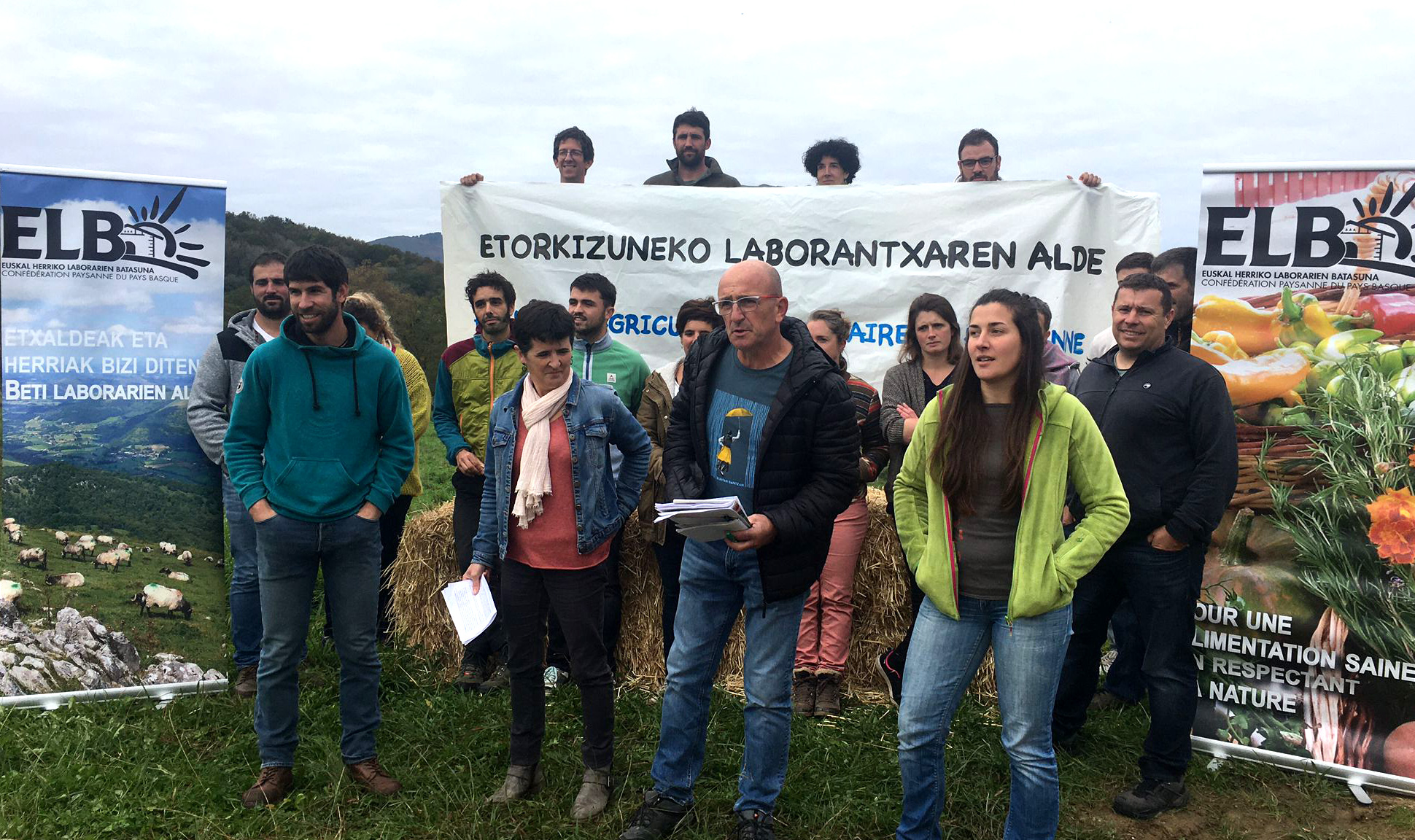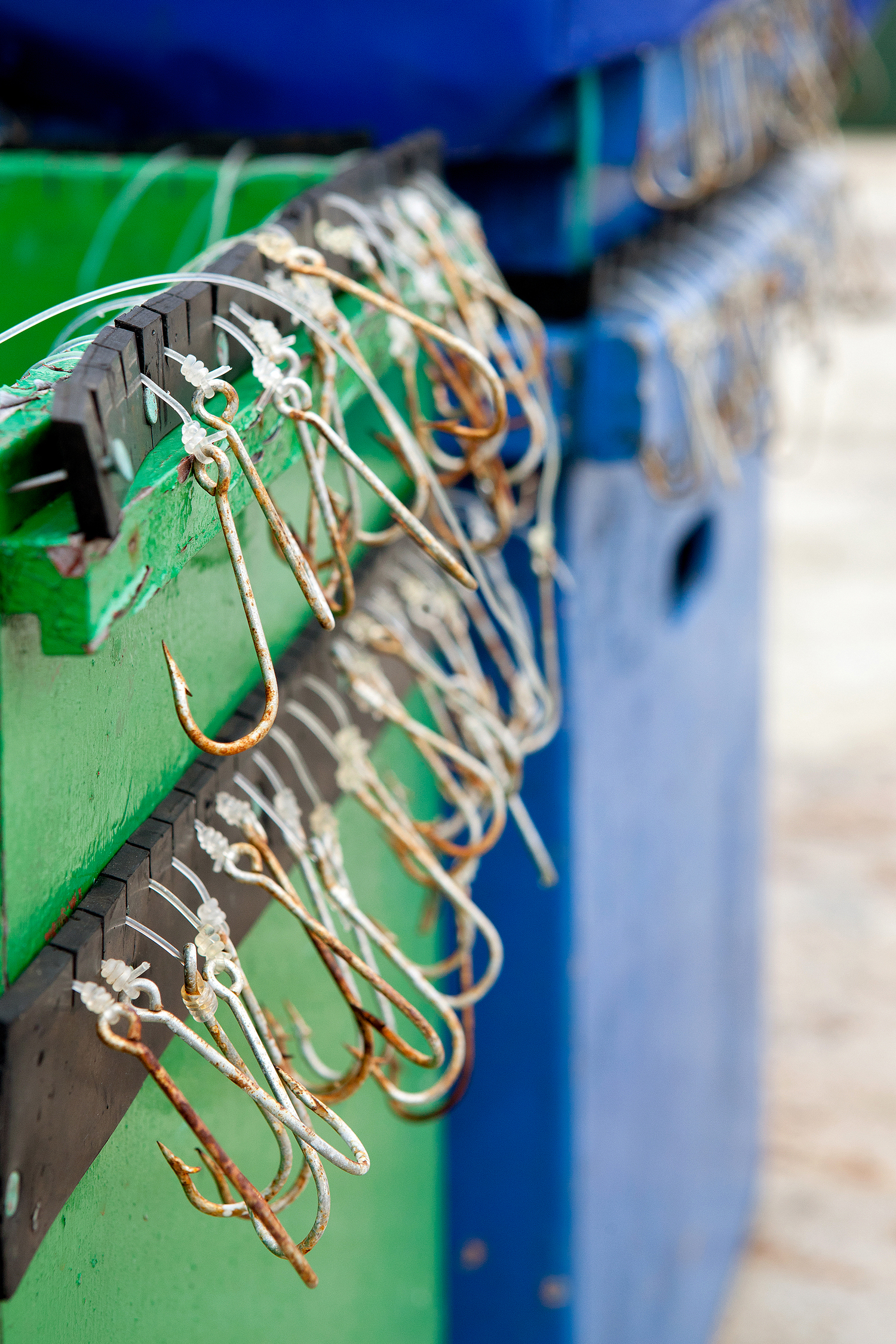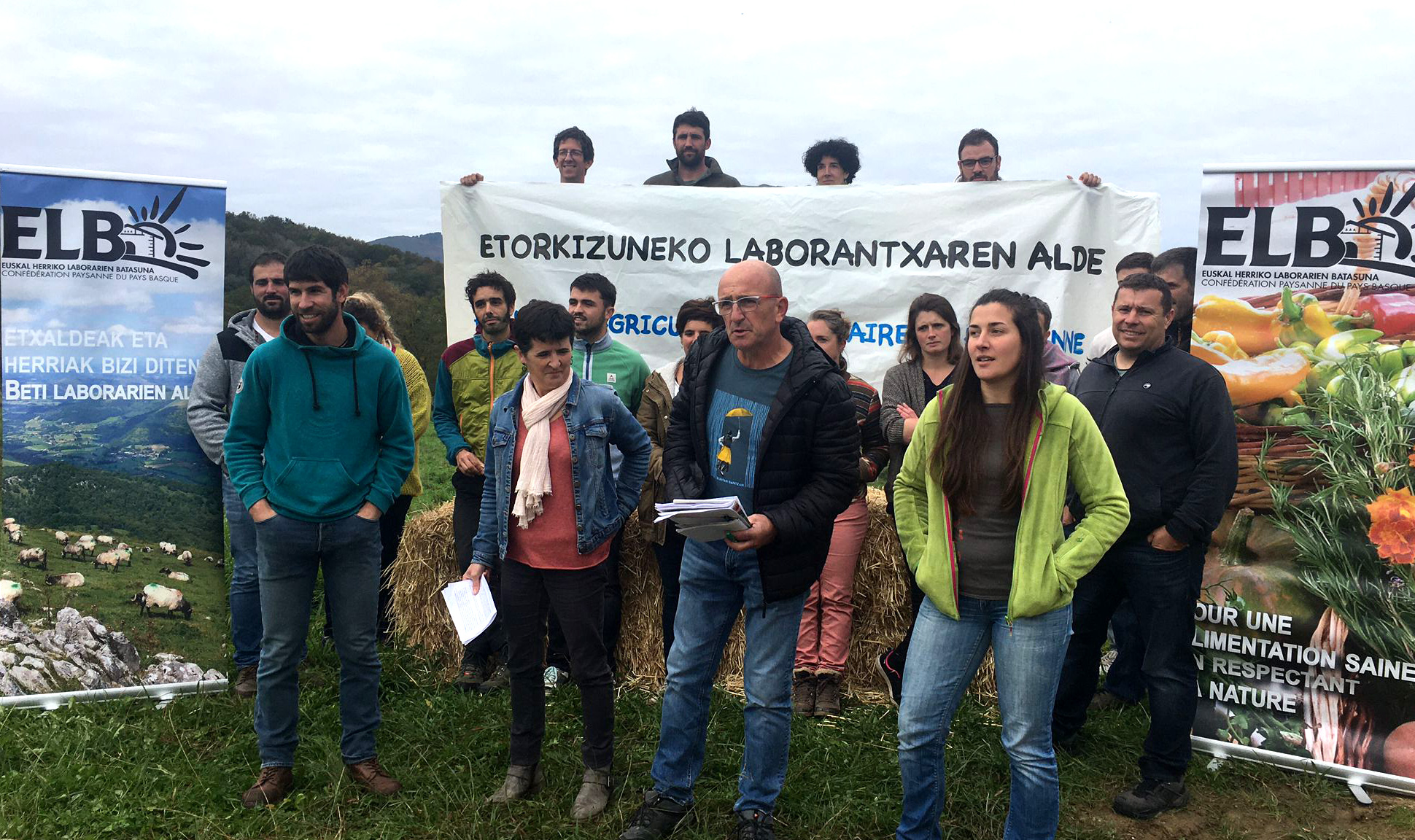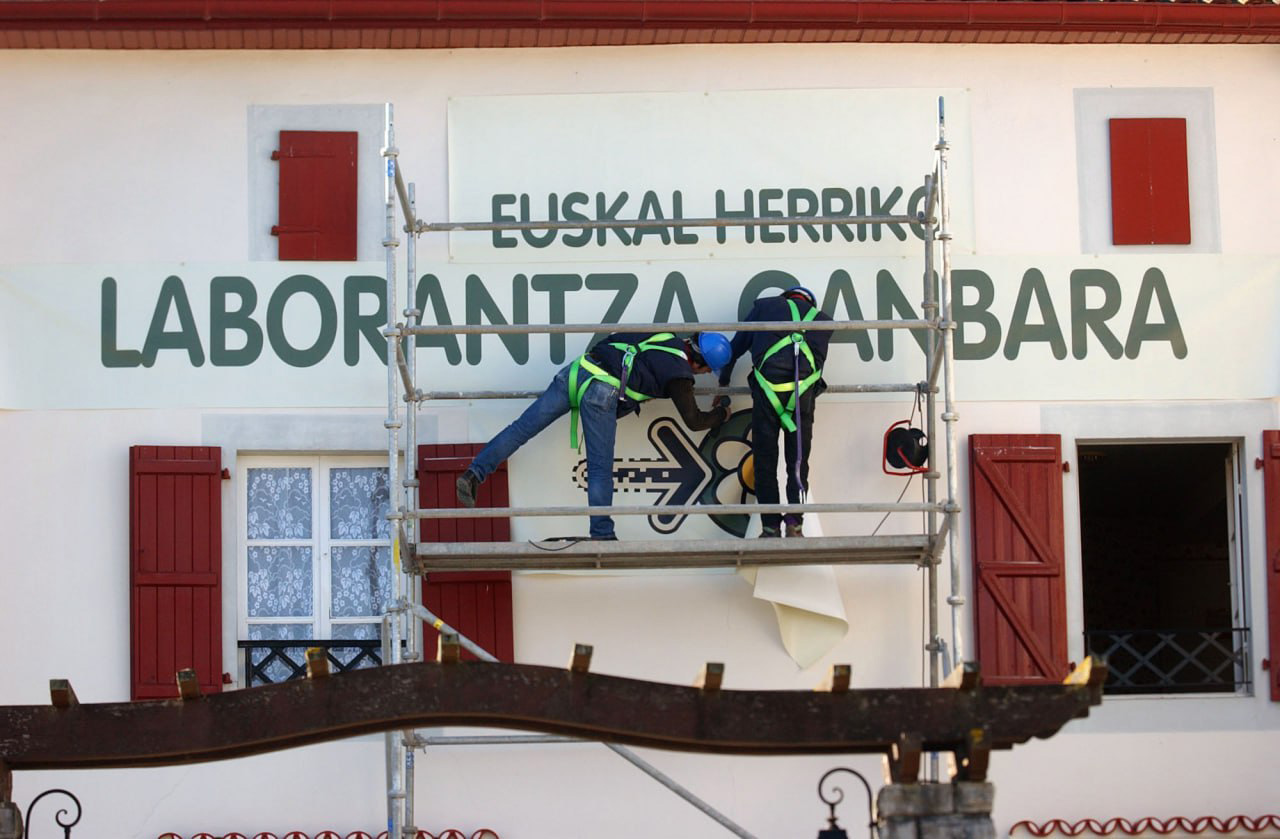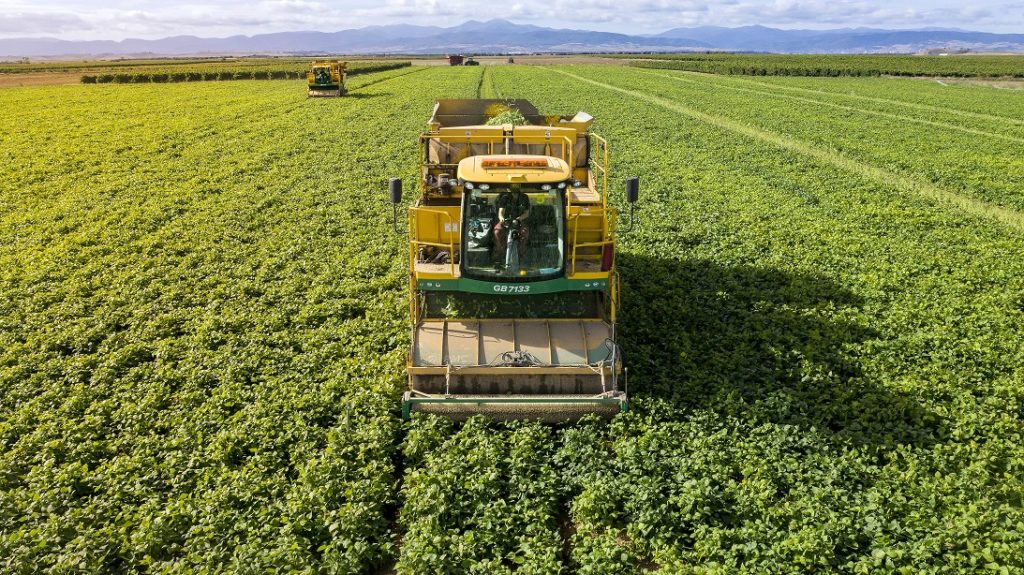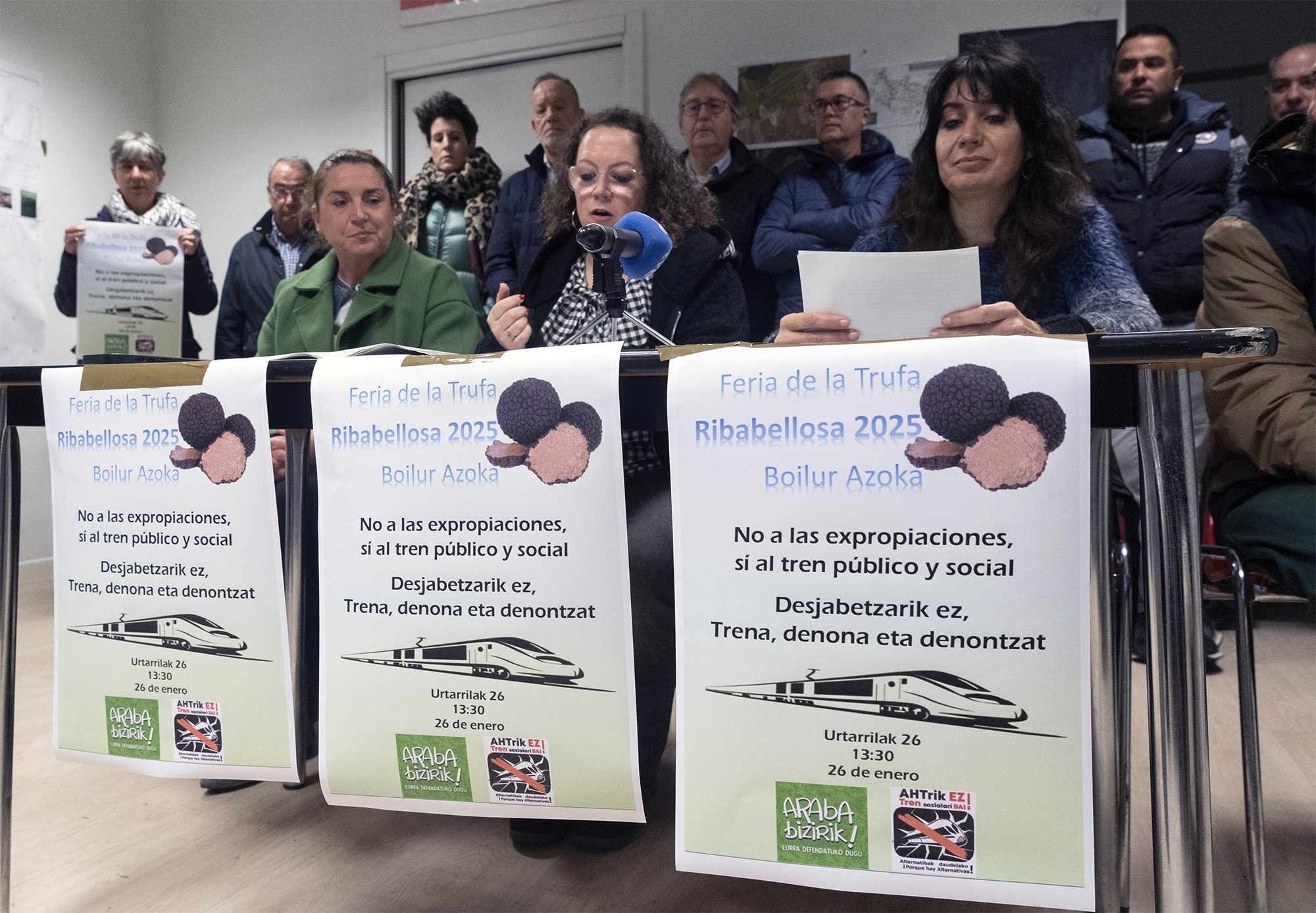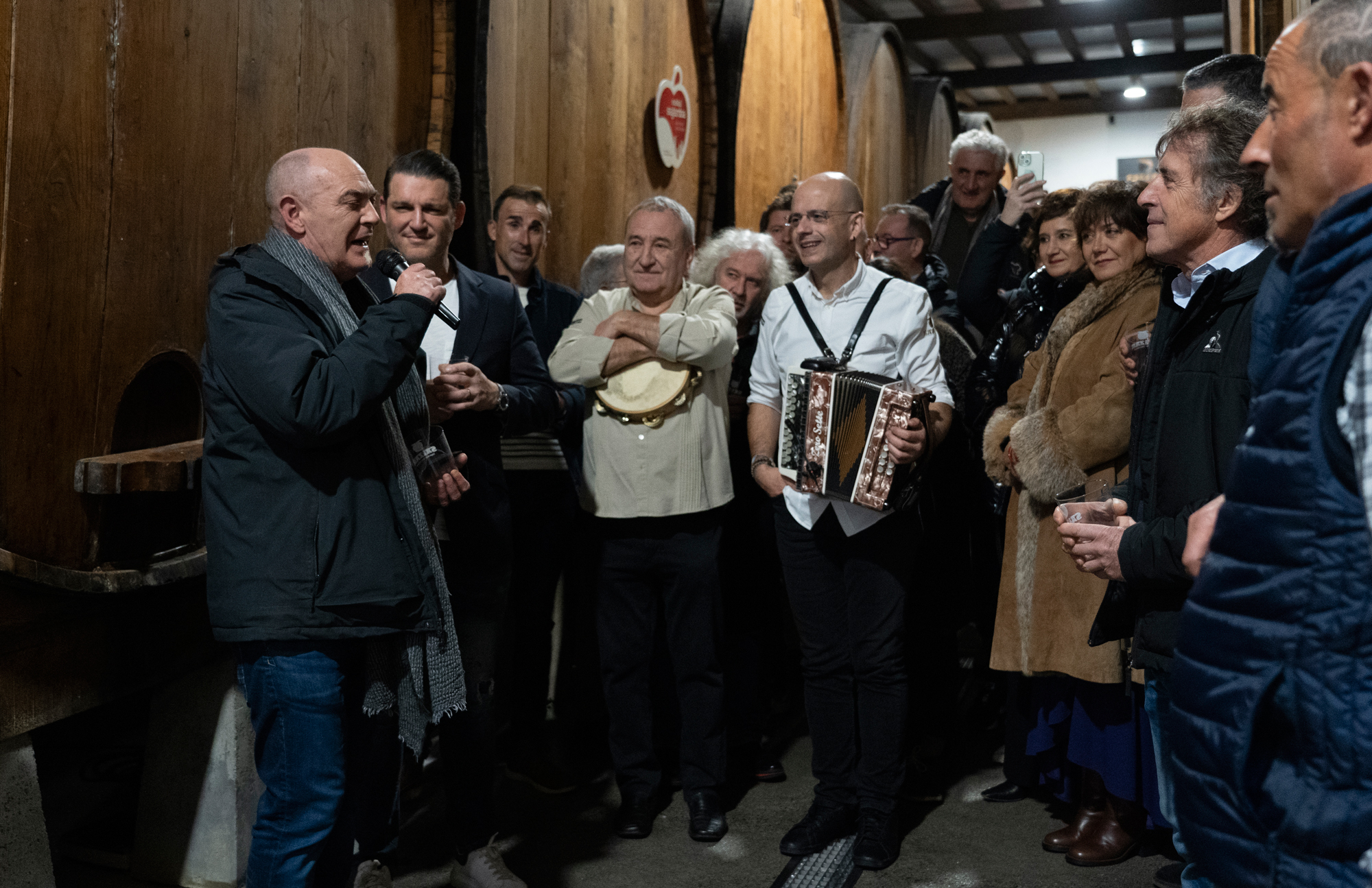"To oppose the protection offered by designations of origin is to oppose our life forever"
- Ustarroz is from the beginning the top organizer of the 49 Artzain Eguna that is held this year. He is also the president of the Idiazabal Designation of Origin. He has spent his entire life claiming and publicizing the value of the work of pastors and cheesemakers, without him being a pastor.
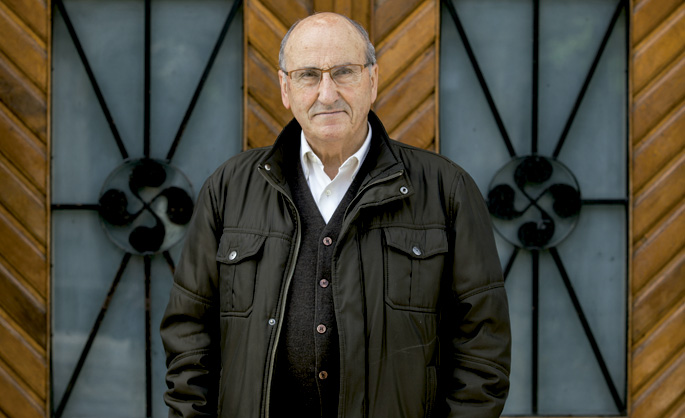
Heldu den urtean 50. edizioa beteko duen Artzain Egunaren bultzatzaile nagusia da, Idiazabal Jatorrizko Izendapeneko lehendakaria eta Aralarko San Migelen kofradiako lehendakaria. 56 urtez bertako kapilaua izan zen, don Inozenzio Aierbe apaiz ezagunaren gertuko laguntzailea, haurra zenetik. 45 urtez lantegi bateko salmenta arduraduna izan ostean, erretiroa hartuta dago eta “inoiz baino lanpetuago”. Hiru alabaren aita da.
He was born in the year the war ended. What was your childhood like?
Very hard. My father was from here, from Huarte and the youngest of the siblings, so at the age of 12 he had to leave the house and started working as an assistant in several houses. Later, while working on the railway line from Bilbao to Miranda, a van reached him and cut off his leg. When he recovered he went to a family here in Beasain and with them he learned the barber trade. He returned to the town and the mayor named him alminte or sheriff, but in 36 everything changed. On July 18, the mayor, his son and a friend of his son were transferred, and we still do not know where his mortal remains are. My father was also reprimanded. It was a very bad time. As soon as the war broke out, it was left without the use of sheriff and with very little barber work. People were scared and didn't leave the house. They were starving to death. I had two brothers. I met my sister just, but not my brother. They both died. As his mother said, “the misery of war was taken away.” My mother left with that sadness. And also, with a lot of fear, they lived those years. For a year and a half until three o’clock in the morning, they did not sleep because they believed they had to knock at the door, since they said they had to pass a “narrower” comb. In addition, my father was very grateful that all the legionaries who were here were going to shave and scrape their hair. Once they've left, we're still starving here. I started helping my father when I was six years old. We passed the misery. The school here was also desolate in those years. The good teachers were fired and there was nothing to do.
How did he get to San Miguel?
When I was 11 years old, I got a chance to go to San Miguel. A cousin of mine who worked there at the time told us that the chaplain castrense Don Inocencio Aierbe had to take a boyfriend. My parents thought that they would feed me well and I would be better off in terms of studies than here, so I went and stayed for seven years. I took classes, there was a very good library, and I learned everything, also making cheese.
After those years I had to go back to the village to take care of my mother who was sick and I started working in a workshop near my house. I've only been there for 45 years! It was a hardware factory. The person responsible was also Basque and I was very well served. As we were selling more and more, I was named sales manager. That's what I did in the domestic market and in the world.
Grazing and cheesemaking, hobby?
Yes. We at home have never had beasts or land, except the garden. In San Miguel, we had a great relationship with the pastors. We were with them whenever we could and they were with us. In February 1956, for example, we saved two pastors from Uztegi. It was a formidable snowfall and on that night it made the most intense cold we've ever known here: 25 degrees below zero. The shepherds were caught in the snow. He was only 16 years old and Don Inocenzio, Joxe Zufiaurre, Aralar patron, Félix Etxabarri de Urdiain and the four of us went to find them with skis and rescue dogs. If we hadn't left, they would have died. It was the most serious, but we've been helping people on the mountain many times.
How did you start organizing Artzain Eguna 49 years ago?
Throughout the peninsula, the first pastoral dog competition was held in Girona, in the village of Ribes de Freser. The veterinarian there prepared that first championship, similar to one he had seen in England. Some mountaineers in Oñati saw it and thought it could be appropriate to do so in the Basque Country. A year later, the first international championship was organized. Many of these mountaineers from Oñati came to Aralar and proposed to the Town Hall of Huarte that he also make a competition in Navarre for the Oñati competition and that it would be used to qualify for the Euskal Herria championship held by the Gerediaga association in Durango.
It was the first time that the operation was to be carried out in 1963, but twenty minutes after the terrible fire of the day before, a quarter of the town was burned. Years later, in 1967, the Armenian Aralarmendi Association began organizing the pastoral dog competition. At first we thought people would come in for two or three years and then they wouldn't go on. But the opposite happened.
Why is that day done?
In the 1980s we thought we had to do something with the cheesemakers here, because it was believed that Europe’s borders would soon fall and cheeses would come from all over the place. At that time, the Government of Navarre was very close to cheesemoners by means of rules. They were required to have health records and were not offered any assistance or resources. That's why they lived terrified. Outsiders would have better marketing and they thought they would have nothing to do here.
That is why we decided to make a contest to claim the value of cheese made with sheep's milk. The first year we went to the Council to ask for help and we were almost threatened. It was no wonder that the mayor was very happy with us.
Imagine the fear of the cheesemakers, we had to telephone the night before the competition to convince everyone to come, saying that nothing would happen to them. They were supposed to be fined and almost taken to jail as soon as they were here. We saw clearly that we should help them if we did not want the cheese shop here to disappear forever.
The second year we made an exhibition of latxa sheep with the same idea: to protect the breeds here from those outside. Little by little more competitions were held: that of short sheep, that of short sheep… Now in the program, and in the plaza, it no longer enters!
And how did you start on Idiazabal's appointment board?
I started with Artzain Eguna and the cheeses competition and they took me from there to start the Idiazabal Designation of Origin.
In the 1980s, a designation of origin was decided, a regulatory council to facilitate the work of pastors. The truth is that it took a long time to get going. There were also a number of proposals on the name: Urbasa, Urbia… but a market study was made and it was found that the name that was most known outside here was Idiazabal. As a strategic location, a lot of visitors have passed and there they have sold cheeses from Urbia, Aralar, Urbasa and Andía. That's why we chose the name Idiazabal. Therefore, the “cheese of Idiazabal” is badly said. Ours is Idiazabal cheese. The Council was launched in 1987.
The designation of origin is protected by Europe. That doesn't mean that they give us money, but nobody else can use our name.
The bilateral TTIP Atlantic pact can bring new threats to European designations of origin. Are you worried?
Yes, that is, and that protection is very necessary. Our cheese is made with latxa sheep's milk. This sheep is from here and its social influence is very important. There's no macro flock of sheep here. Here they are all small producers. Each family or cottage has its own flock. That means that our brand extends to the entire wet Basque Country. Our queserías are located in places where there are latxan sheep. Therefore, to oppose the protection offered by designations of origin is to oppose our traditional lifestyle.
What is the production of Idiazabal cheese?
Last year, we made 1,227,000 kilos. We have 122 different sizes of cheese. In proportion we are the ones who have the most pastors and cheesemakers in the world. Contrary to the general trend towards industrialisation, in our country we have more and more smaller cheesemakers and there are also young people getting in. So far this year, three new queseros have entered Navarre. Compared to the previous year, production increased by 8.2% and this year production is expected to increase a little more.
Where is the cheese sold?
More than half in the Basque Country. The rest is very well received in Madrid, Barcelona, Catalonia… They love our cheese. Export success is also increasing. It is a work and a food for the future. Our advice is one of the most demanding in Europe and we have very good relations with other councils, such as Parmesano.
Welcome and prizes in the market.
We do not value enough here. I have recently been in Madrid at the Gourmet Trade Fair and at the Barcelona Food Fair. Our pastor, Joseba Insausti, of the Otatza de Ordizia farmhouse, has been awarded the best cheese on the Peninsula for Aralar cheese. In addition, the Ministry presented it as “mountain cheese from the Basque Country”. That is also important. People know more and more of the cheese here, and they appreciate it a lot. We must continue to maintain it.
You are president of the Cofradía de San Miguel de Aralar.
I had a very good relationship with Don Inocencio, until he died 15 years ago. Our brotherhood is very old, from the 10th century, and in the 12th century it reached 40,000 members. Throughout history, it has suffered a great deal of aggression. In the attacks of Abphazán in 924, it is believed, for example, that it destroyed much of the church of Aralar. Then came the black death, and later the conquest of Navarre, which also left her mark. It is known that the kings of Navarre loved Aralar very much. History tells that in 1094, when the church was restored, King Peter I of Navarre took a sack of sand on his back to make an offering.
For many years the brotherhood was in decline, until in the early twentieth century Mariano Arigita, the chantre of the cathedral, tried to revive. He did not succeed, but Don Inocencio picked up the witness and carried out his purpose. I helped him update the statutes and get everything going. We started in 1999, and from the beginning I was named lehendakari. Today we are 1,500 colfradías.
Thanks to Don Inocencio, ETB began to be seen in Navarra 30 years ago, right?
The ikastola Paz de Ziganda was in charge of preparing the act and asked him for permission to install the antenna of Aralar and he hurried to say yes. It was a very courageous decision. He risked his life several times in silence fighting for this people and they never entered with him. I had something special.
Altarpiece enamels also have their story.
Enamels are the best in the world, but nobody could sell them because they are very studied and very well catalogued. In 1979, Erik stole the Belgians, but the matter went wrong because they left him in the hands of INTERPOL, and he was quickly captured.
It's been almost a thousand years since the altarpiece was there and it's kind of like the time it was made. Ten years ago, Baluarte was transferred to the conference and exhibition centre against our opinion. When they took him there, the record of temperature and humidity data showed a series of ups and downs. It's very damaging, and when they started asking them to take the altarpiece to one place and another, we said no. Should we destroy what has preserved thousands of excellent years in ten years? Whoever wants to see him come to Aralar.
In Sakana, the unemployment rate is the highest in Navarre. How do you see the future here?
The industry here has been too closely related to metallurgy. We don't diversify enough. After the crisis, it will be difficult to rebuild our economy, but we are in a good place and we will have to open new avenues. In addition to metallurgy, other industries and services must be created. Furthermore, I always say that women have to be more involved in the world of work. In the company I worked in, we had about 100 workers, 37 of them women. The work they did was of great quality. I have always called for greater participation by women in production. It is necessary. The positive participation of women is also known in grazing. If a woman joins the organization of a farm or a cheese shop, she will certainly go ahead. You notice it in the whole family and in the business and it's also very important for your self-esteem. If it has been the woman of the pastor or the pastor of the house it has not been a 360-degree turn, but a triple! In addition, should jobs in the environment be balanced in order to maintain the vitality of peoples between men and women? Men working here and women looking for work in Pamplona? That is not the way to keep peoples alive.
Aralar gainean zelai bat dago eta aurten indusketak egiten hasiko dira. Betidanik oso toki garrantzitsua izan da. Monumentu megalitiko asko dago eta hortik ere Donejakue bidea pasatzen zen Bordele eta Astorga lotzen zituen bide erromatarretik. Harri horietan dagoen espiritua uste duguna baino sakonagoa da.
Arrantza handi eta industriala defizitarioagoa da sozialki, ekonomikoki eta ekologikoki arrantza txikiaren alboan; arrantza txikiak baino dirulaguntza publiko dezente gehiago jasotzen ditu; eta are, soilik laguntza horiei esker bizirauten du. Horixe erakutsi du Frantziako... [+]
Datorren astean Departamenduko Laborantza Ganbarako hauteskundeak ospatuko dira Ipar Euskal Herrian. Frantzia mailako FDSEA eta CR sindikatuez gain, ELB Euskal Herriko Laborarien Batasuna aurkezten da, "euskal laborarien defentsa" bermatzeko.
Euskal Herriko Laborantza Ganbera elkartearen hogei urteak ospatu zituzten asteburuan Ainhize-Monjolosen. 2005eko urtarrilaren 15 hartan sortu zuten Lapurdi, Baxenabarre eta Zuberoako laborantzaren garapena –hori bai, iraunkorra eta herrikoia izan nahi duena–... [+]
Departamenduko Laborantza Ganbarako hauteskundeen kanpaina abiatu da. Urtarrilaren 14an bozetara aurkezten diren hiru sindikatuen ordezkariekin bi oreneko eztabaida sakona antolatu zuten Euskal Hedabideek, osoki euskaraz.







